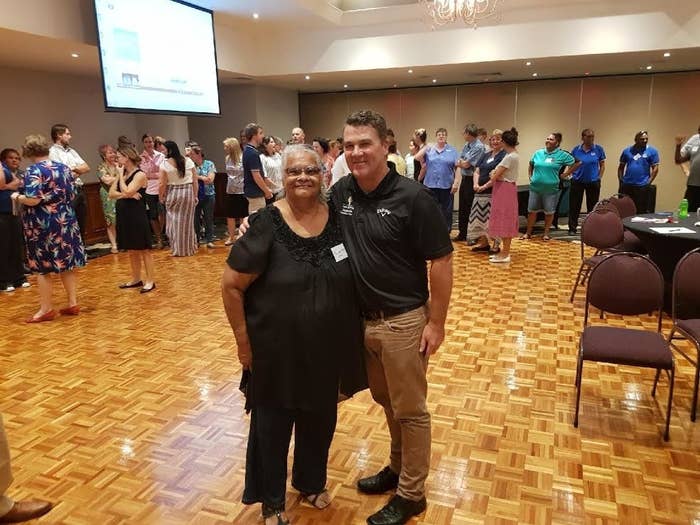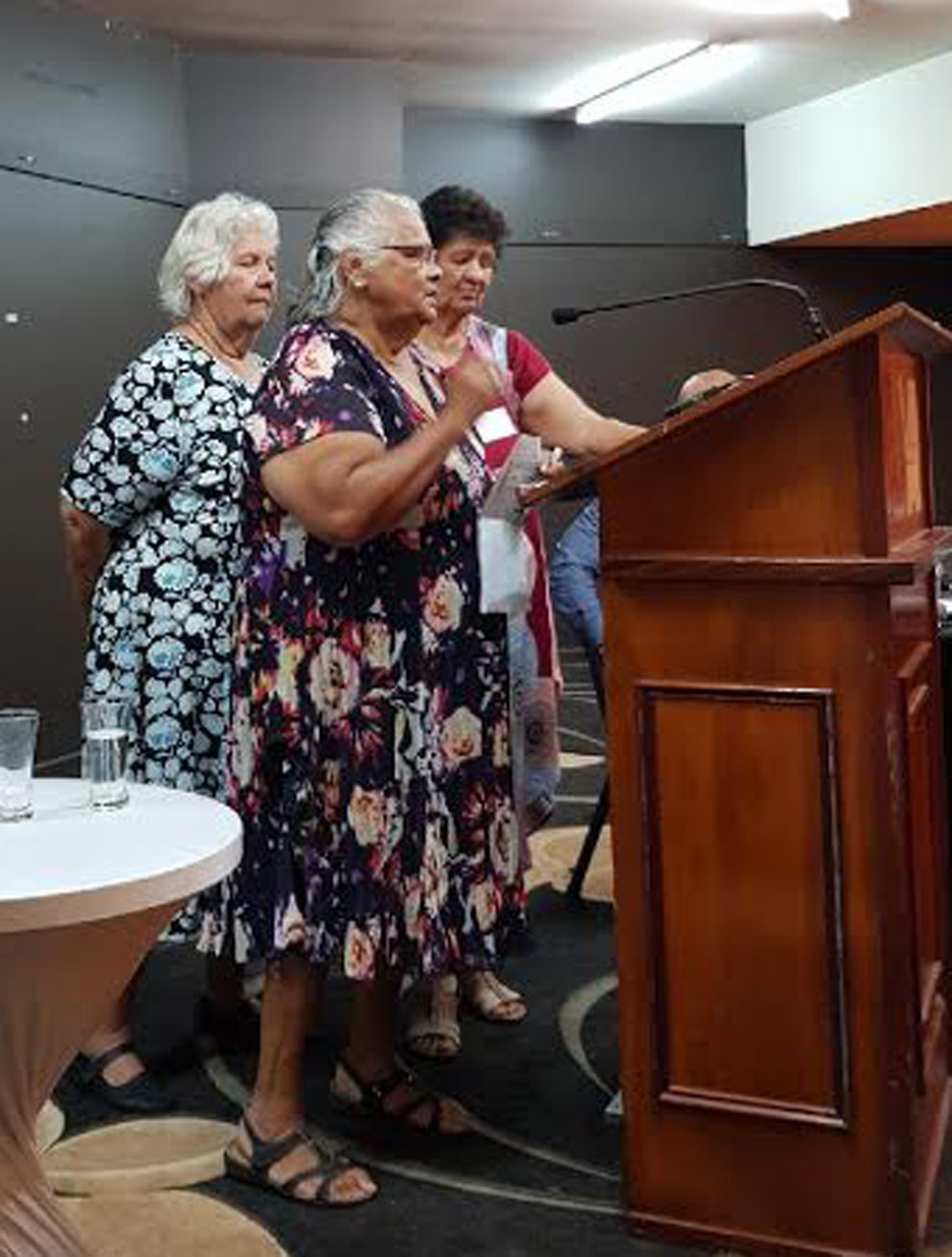Two decades ago a group of Aboriginal women from Rockhampton in Central Queensland realised the harm that drinking during pregnancy was having on the next generation.

But despite years spent tipping in their own money to support Aboriginal people affected by Foetal Alcohol Spectrum Disorder (FASD) in daily life, education and employment, as well as undertaking FASD training, they have been continually knocked back for funding.
"I worked in drug and alcohol for eight or nine years, and picked up a lot of things working with the young ones, and going to Woorabinda and working in different areas like Biloela and Emerald," Aunty Priscilla Illes told BuzzFeed News.
"There were (noticeably different facial) features, but there were a lot of things about these young ones, and even the older ones, that didn't seem right."
It took a trip to New Mexico for a First Nations healing conference for her to learn there was a name for the condition — Foetal Alcohol Spectrum Disorder — and that First Nations communities overseas were ahead of Australia in not only identifying and dealing with the issue.
FASD is a permanent brain injury that is caused when an expectant mother drinks during pregnancy and the alcohol is passed in the bloodstream to the developing foetus.
Aunty Priscilla and elders Aunty Elaine Williams, Aunty Judy Tatow and Aunty Carol Willie were the forefront of educating the Central Queensland Aboriginal community on the dangers of drinking during pregnancy.

"We applied for funding and we couldn't get it," Aunty Priscilla said. "We were knocking on doors but no-one was answering."
The elders were among 200 people who attended an FASD symposium in Rockhampton last week. It was aimed at raising awareness and knowledge about FASD in the region, as well as improving the capacity of community and service providers to tackle FASD.
Children with FASD experience learning difficulties, problems with memory and attention span, cause-and-effect reasoning and impulsivity, as well as speech and other disabilities. It leaves them vulnerable to the justice system and can lead to barriers in education and employment.
A study conducted earlier this year found that one-in-three youth in Western Australia's Banksia Hills juvenile detention centre have FASD.
While 10% of those affected develop facial characteristics that help diagnosis, for the remaining 90% a diagnosis can only be determined through identifying these behaviours.
There are no current statistics on how common FASD is. A Parliamentary inquiry in 2012 found that prevalence is expected to be high, with over 60 percent of Australian mothers consuming alcohol while pregnant.
"It is the leading preventable cause of developmental disability in the Western world," Dr Heidi Webster, a Sunshine Coast-based developmental and behavioural physician, said.
"More children are born each year with FASD in the world than autism, spina bifida, cerebral palsy, down syndrome and deaths from sudden infant death syndrome combined."
She says that while medical services, government and researchers are spending money and time on addressing these issues, there is little focus on FASD.
Andrew Evetts, principal of Wadja Wadja High School at Woorabinda, an Aboriginal community west of Rockhampton, says he sees the effects of FASD every day in the community. He estimates about 80% of his students may be affected by FASD. It was a problem he saw seven years ago when he taught at the primary school.
"(They have) no boundaries, they just do dangerous things," Evetts told BuzzFeed News. "They'll climb the roofs, and ... they won't climb down, they'll jump down. There's no fear. They'll react angrily, have outbursts, and that's where you really have got to have patience, you know it's not the child, it's the condition.
"You have to remember teachers aren't trained in FASD. So that's our biggest barrier to start with. A, Identifying it. And B, having the teachers to be able to support that child in the classroom."
For too long, the support has not been there.
Dr Janet Hammill, a Gomeroi woman and an FASD researcher, says the bulk of funding has "been wasted on reinventing the wheel and not reaching the ground".
"I am most concerned about the future of our children and in particular 'my kids', who were exposed to alcohol before birth," Hammill told BuzzFeed News. "Some of them are now becoming grandparents, some are in prison and there are suicides as well.
"Failure to act on the urgency of their situation can be blamed on the lack of political will, as well as our own Indigenous representatives."
Hammill has tried to raise the issue of FASD at numerous conferences and says that the shocking rates of FASD in Aboriginal communities have been "downplayed", even by Aboriginal organisations.
Hammill says she is battling misconceptions that to identify the issue is to "blame mothers".
"It began with attempts to shoot the messenger, until finally the truth had to be accepted. There were attempts to blame women and Indigenous people, instead of locating the blame solely in foetal programming [the multi-generational impact of FASD] caused by over 200 years of devastating ... actions of the newcomers to this country."
Hammill says it's now time for the resources to be directed to "support the strengths and capacity of dedicated workers in the field.
"That is why I was overjoyed to connect again with Murri women, who have hung in there after 18 years of being trained in FASD and not losing hope. If only now policy makers will recognise the substantial hub of knowledge and commitment that is evident with the Aunties, and across so many of our communities where these hubs exist."
If you need to talk to someone, you can call Lifeline Australia on 13 11 14 or Beyond Blue Australia on 1300 22 4636; Anxiety UK on 08444 775 774; or Hopeline America on 1-800-784-2433.
